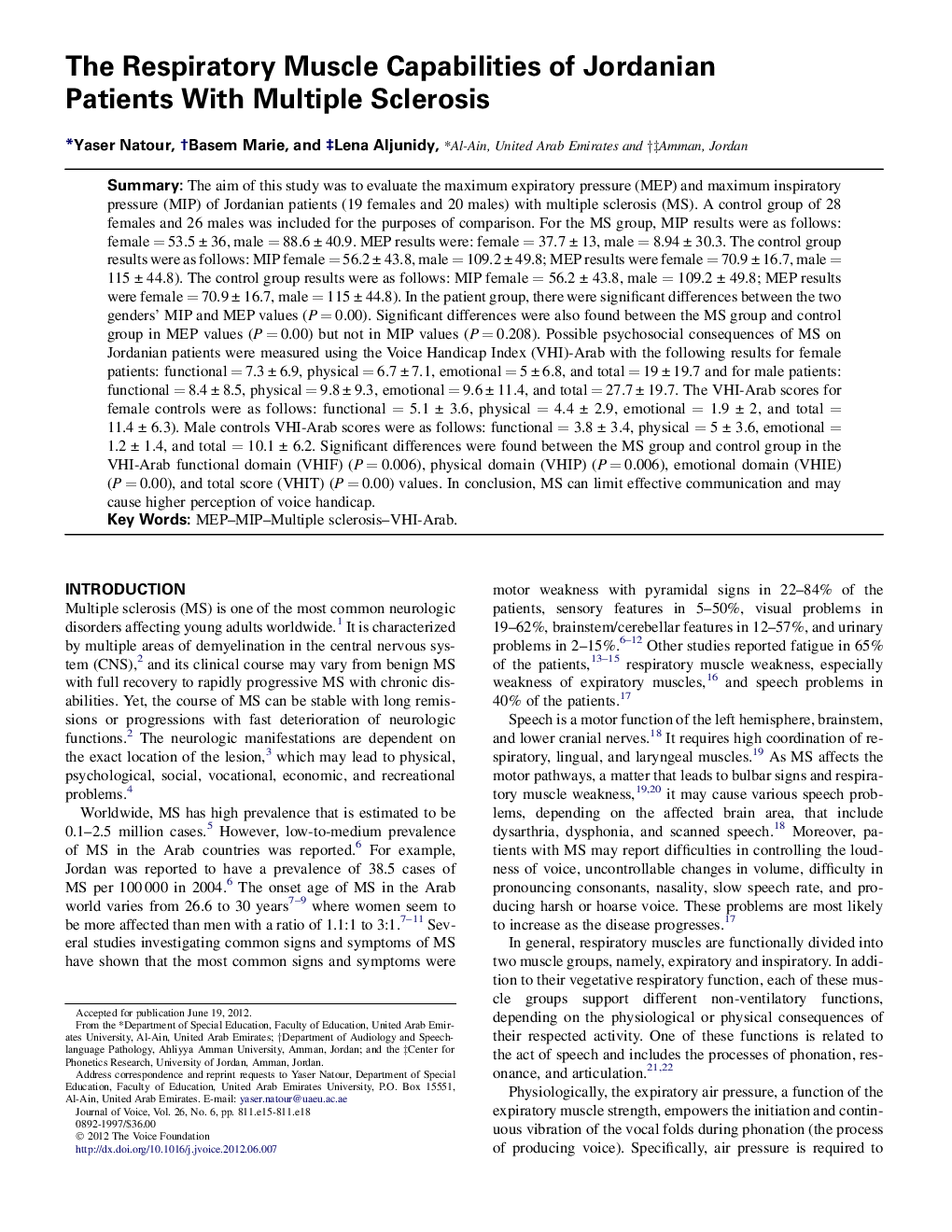| Article ID | Journal | Published Year | Pages | File Type |
|---|---|---|---|---|
| 10519655 | Journal of Voice | 2012 | 4 Pages |
Abstract
The aim of this study was to evaluate the maximum expiratory pressure (MEP) and maximum inspiratory pressure (MIP) of Jordanian patients (19 females and 20 males) with multiple sclerosis (MS). A control group of 28 females and 26 males was included for the purposes of comparison. For the MS group, MIP results were as follows: female = 53.5 ± 36, male = 88.6 ± 40.9. MEP results were: female = 37.7 ± 13, male = 8.94 ± 30.3. The control group results were as follows: MIP female = 56.2 ± 43.8, male = 109.2 ± 49.8; MEP results were female = 70.9 ± 16.7, male = 115 ± 44.8). The control group results were as follows: MIP female = 56.2 ± 43.8, male = 109.2 ± 49.8; MEP results were female = 70.9 ± 16.7, male = 115 ± 44.8). In the patient group, there were significant differences between the two genders' MIP and MEP values (P = 0.00). Significant differences were also found between the MS group and control group in MEP values (P = 0.00) but not in MIP values (P = 0.208). Possible psychosocial consequences of MS on Jordanian patients were measured using the Voice Handicap Index (VHI)-Arab with the following results for female patients: functional = 7.3 ± 6.9, physical = 6.7 ± 7.1, emotional = 5 ± 6.8, and total = 19 ± 19.7 and for male patients: functional = 8.4 ± 8.5, physical = 9.8 ± 9.3, emotional = 9.6 ± 11.4, and total = 27.7 ± 19.7. The VHI-Arab scores for female controls were as follows: functional = 5.1 ± 3.6, physical = 4.4 ± 2.9, emotional = 1.9 ± 2, and total = 11.4 ± 6.3). Male controls VHI-Arab scores were as follows: functional = 3.8 ± 3.4, physical = 5 ± 3.6, emotional = 1.2 ± 1.4, and total = 10.1 ± 6.2. Significant differences were found between the MS group and control group in the VHI-Arab functional domain (VHIF) (P = 0.006), physical domain (VHIP) (P = 0.006), emotional domain (VHIE) (P = 0.00), and total score (VHIT) (P = 0.00) values. In conclusion, MS can limit effective communication and may cause higher perception of voice handicap.
Keywords
Related Topics
Health Sciences
Medicine and Dentistry
Otorhinolaryngology and Facial Plastic Surgery
Authors
Yaser Natour, Basem Marie, Lena Aljunidy,
